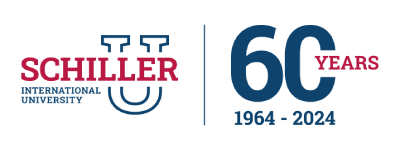In an era defined by rapid technological advancements, the traditional landscape of international relations and diplomacy has undergone a profound transformation. The emergence of social media platforms has given rise to a new dimension in global affairs, shaping the way nations communicate and interact on the world stage. As we navigate this digital era, understanding the role of social media in international relations becomes crucial. At Schiller International University, where students can pursue degrees in both Bachelor's and Master's programs in International Relations and Diplomacy, the curriculum is designed to equip students with the knowledge and skills necessary to navigate the complexities of this evolving landscape.
The Power of Social Media in Diplomacy:
Social media has become an influential force in shaping public opinion, mobilizing populations, and influencing policy decisions. Diplomacy, once confined to closed-door meetings and official statements, has now expanded its reach through platforms like Twitter, Facebook, and Instagram. World leaders, diplomats, and governments utilize social media as a tool to engage with global audiences, share perspectives, and conduct public diplomacy.
Real-time Communication and Crisis Management:
The instantaneous nature of social media enables leaders to communicate directly with the public, allowing for transparency and accessibility. During times of crisis or conflict, leaders can leverage these platforms to disseminate information, clarify positions, and manage public perceptions. This direct engagement fosters a sense of connection and accountability between governments and their citizens.
Digital Diplomacy as Soft Power:
In the realm of international relations, the concept of soft power, coined by political scientist Joseph Nye, emphasizes the ability to shape the preferences of others through appeal and attraction rather than coercion. Social media serves as a potent tool for projecting soft power, enabling nations to showcase their culture, values, and ideals to a global audience. Through well-crafted online campaigns, countries can enhance their international image and influence.
Global Diplomacy in the Classroom:
At Schiller International University, students pursuing degrees in International Relations and Diplomacy are immersed in a curriculum that reflects the evolving dynamics of global affairs. With a focus on practical skills, critical analysis, and a deep understanding of diplomatic traditions, students are prepared to navigate the complexities of the digital age.
The Future of Digital Diplomacy:
As technology continues to advance, the role of social media in international relations will likely evolve further. Future diplomats will need to be adept at harnessing the power of digital platforms while navigating the challenges and risks associated with online communication. The programs at Schiller International University are designed to equip students with the skills and knowledge required to excel in this dynamic field.
The rise of digital diplomacy marks a transformative moment in international relations, where social media serves as a bridge between nations, leaders, and citizens. As we witness this evolution, Schiller International University stands at the forefront, providing students with a comprehensive education in International Relations and Diplomacy. Through a curriculum that integrates the principles of traditional diplomacy with the dynamics of the digital age, graduates are well-prepared to contribute to the ever-changing landscape of global affairs.

 Request information
Request information








